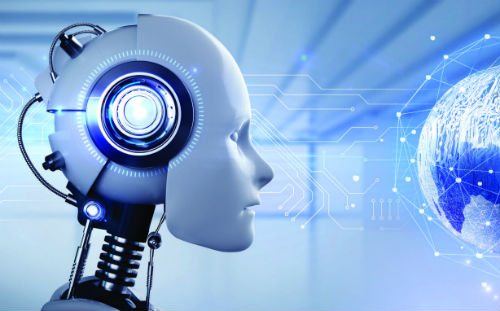The Interdisciplinary Major is an undergraduate degree program that combines or integrates two or more degree courses that may be established and managed upon satisfying the graduation requirements of credits for a first major or for a second major. Chonnam National University is now starting four different interdisciplinary majors from the 2018 Spring Semester by adopting the new educational requirements in the era of the fourth Industrial Revolution - IoT AI, Robot, BigData Fintech, and Renewable Energy.

Core Technologies in the 4th Industrial Revolution
IoT means “Internet of Things”. The IoT technology makes it possible to connect anything in the world including our mobile phones via the internet, and it means that every single piece of information in our daily life is collected onto the computer in real-time. Big Data is a by-product of this IoT technology. AI means “Artificial Intelligence”, and the AI technology utilizes these Big Data to derive useful information, to make computers as smart as humans, or even to make computers smarter than humans. AI researchers have been trying to build a human-like machine with intelligence in such areas as visual interpretation, speech recognition, text understanding, and so on. There have been many technical breakthroughs in AI research, but the Deep Learning technique that was introduced in around 2010 was the one that had the most impact.
Many people agree that both IoT and AI are the core technologies in the fourth industrial revolution. The fourth industrial revolution is quite different from the previous three revolutions in the sense that it pursues to automate the intellectual labor of humans, rather than automating the physical labor. It implies that the industrial job market will change so quickly in the near future. Our society will no longer need high-tech experts, such as journalists, lawyers, fund managers, doctors, pharmacists, university professors, and so on. Instead, we need computer programs that will automate these high-tech jobs. Automation is an inevitable trend because it is becoming technically possible, and it can be more accurate and less expensive than a human.
The Need for Computational Thinking Capability
It is quite sure that we cannot survive in the age of the fourth industrial revolution with only one skill. We should be able to do many kinds of tasks, or jobs. This is a difficult challenge to university students in the future as well as current students. Fortunately, it is also sure that most future jobs will include dealing with computers. It means that we need the capability of dealing with computers to solve problems. “Computational Thinking” is a new academic field to study how to think like a computer and how to solve the given problem with a computer.
The IoT AI interdisciplinary major has been organized to provide an educational program for those students who will be equipped with computational thinking capabilities. They will learn the basic principles of information technology such as IoT, Cloud, BigData, Mobile computing, and so on, learn how to use the open source tools for AI and machine learning technologies, and then apply these intelligent information techniques to many different applications such as HealthCare, FinTech, Smart Factory, Smart Farm, Autonomous Vehicles, Renewable Energy, and so on.
IoT AI Interdisciplinary Major Starting from Spring 2018
Seven professors are currently involved in the IoT AI interdisciplinary major: four professors from the department of computer science majoring in software engineering and artificial intelligence, one professor from the department of statistics majoring in big data analysis, one professor from the department of industrial engineering majoring in smart factory design, and one professor from the department of biological chemistry majoring in IoT-based agriculture. In addition, 30 students are now enrolled in the IoT AI interdisciplinary major: 15 students as their 1st major, and another 15 students as their 2nd major. All of them are regarded as sophomore students and they are now attending 2nd year classes of the curriculum, such as C programming, JAVA programming, linear algebra, discrete mathematics, Linux system, etc.
The curriculum of the IoT AI interdisciplinary major consists of coursework that lasts three years. The first two years, during their sophomore and junior years, are for studying basic knowledge about computer programming and AI techniques, and the last year as a senior student is for applying these basic skills in many different applications as a capstone design and/or industrial internships. The IoT AI interdisciplinary major requires 130 credits for graduation as a first major: 30 credits from liberal arts such as computational thinking, global communication English, career design, etc., 69 credits from IoT and AI major classes, and 31 credits from other courses which are the students’ choice. The minimum credits for finishing the IoT AI, as a second major is 48.
The IoT AI interdisciplinary major will be evolving constantly according to the changes of social demand and the curriculum will also be replaced with state-of-the-art technology. In addition, the IoT AI interdisciplinary major is open to all students and professors.
By Kim Soo-hyung, Professor, Dean of IoT AI Interdisciplinary Major

